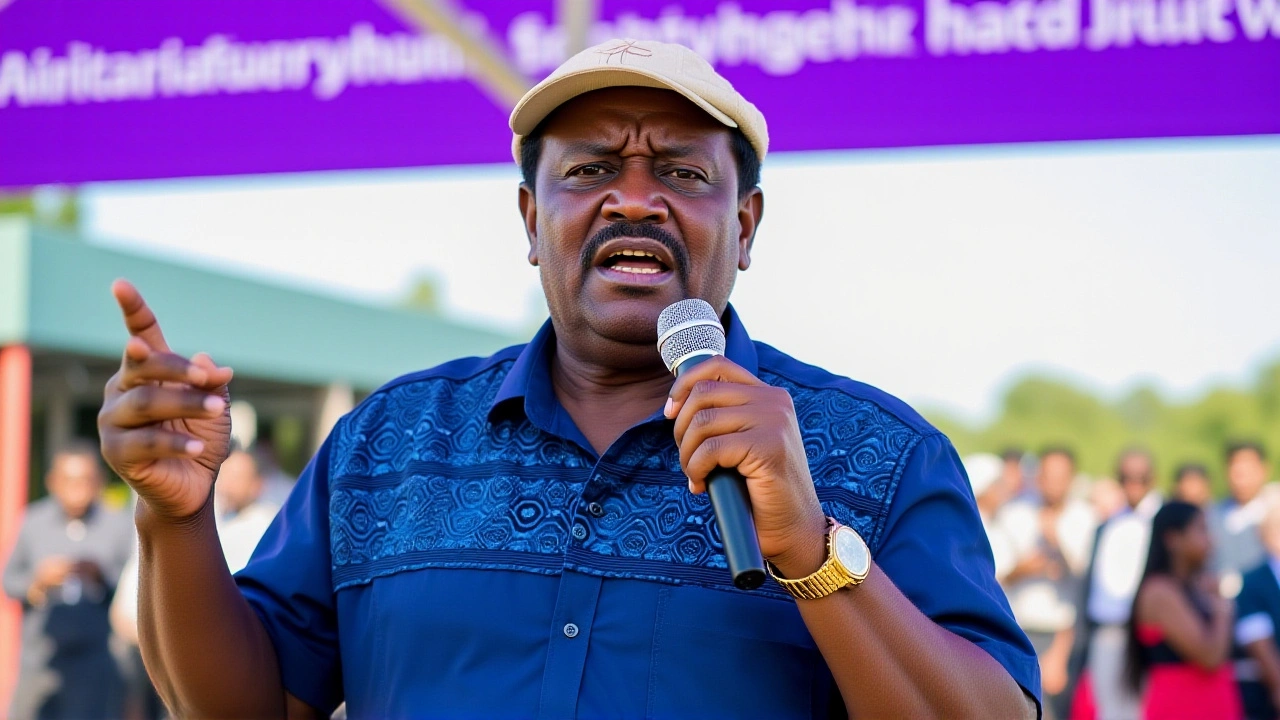Kenya Politics – Latest News and Analysis
When you follow Kenya politics, the day‑to‑day political landscape of the Republic of Kenya, including elections, policy debates, and power shifts. Also known as Kenyan political affairs, it affects everything from the national budget to local community projects. The Kenyan government, the executive, legislative and judicial branches that run the country and the Opposition parties, the main challengers to the ruling coalition, often shape the agenda are the primary actors. The Election Commission, the independent body that manages voter registration, election logistics and results verification safeguards the process.
Key Themes Shaping Kenya Politics
One of the biggest drivers right now is Kenya politics itself demanding constitutional reform. The 2010 constitution introduced devolved counties, but many citizens still call for clearer power balances between the President and Parliament. This push shows how Kenya politics encompasses electoral reforms, legal tweaks, and public participation. At the same time, corruption scandals keep the spotlight on transparency, meaning Kenya politics requires strong institutions to keep officials in check.
Economic policy is another hot link. When the government launches a new budget, opposition parties often vote against it, creating a seesaw that forces compromise. That dynamic illustrates the semantic triple: Opposition parties influence Kenya politics. In practice, this tussle can affect everything from infrastructure projects to agricultural subsidies, which directly impact everyday Kenyans.
The role of the Election Commission cannot be overstated. By managing reliable voter rolls and enforcing fair counting, the commission protects Kenya politics from disputes that could destabilize the country. Recent elections saw new digital tools for transmitting results, a clear example of how technology is being woven into the political fabric.
Regional diplomacy also feeds into the story. Kenya’s position in East Africa means its political decisions affect neighbors like Uganda and Tanzania. Trade agreements, security pacts, and shared water resources all flow from decisions made within Kenya politics, showing a broader cause‑and‑effect chain.
Social movements add another layer. Youth groups, civil society NGOs, and online activists use social media to hold leaders accountable. Their pressure often forces the government to adjust policies on education, internet freedom, and human rights. This demonstrates that Kenya politics requires active citizen engagement to stay responsive.
Judicial rulings shape the legal landscape, too. The Supreme Court’s recent verdict on election petitions set a precedent that will guide future contests. When courts intervene, they reinforce the rule of law, another pillar that Kenya politics depends on.
Finally, media coverage plays a crucial role in informing the public. Accurate reporting helps voters understand candidates’ platforms, while investigative journalism uncovers hidden issues. A well‑informed electorate is the engine that drives healthy political competition.
All these pieces—government, opposition, election bodies, reforms, and civic actors—interlock to form the complex picture of Kenya politics. Below you’ll find a curated collection of articles that dive deeper into each of these areas, from breaking election news to analysis of policy impacts.
Browse the list to get the latest updates, expert commentary, and on‑the‑ground reports that will keep you ahead of the curve in Kenya politics.

ODM Leaders Accuse Governor Orengo of Sabotaging Ruto-Odinga Unity Pact
Oct 16, 2025 / 10 Comments
ODM leaders clash over Governor James Orengo's accusations that the Ruto‑Odinga unity pact is an abomination, sparking a political showdown ahead of Kenya's 2027 election.
READ MORERECENT POSTS
- Celebrating Thanksgiving: Embracing Gratitude and Togetherness
- Understanding Angelman Syndrome: Insights from Colin Farrell's Family Experience
- How to Watch Leicester City vs Nottingham Forest Premier League Match Live Free Online
- How to Unlock the Free Hawkeye 'Will of Galacta' Skin in Marvel Rivals Season 3
- Warriors vs. Rockets Showdown: Expert Predictions, Stats, and Analysis for December 11 Clash
